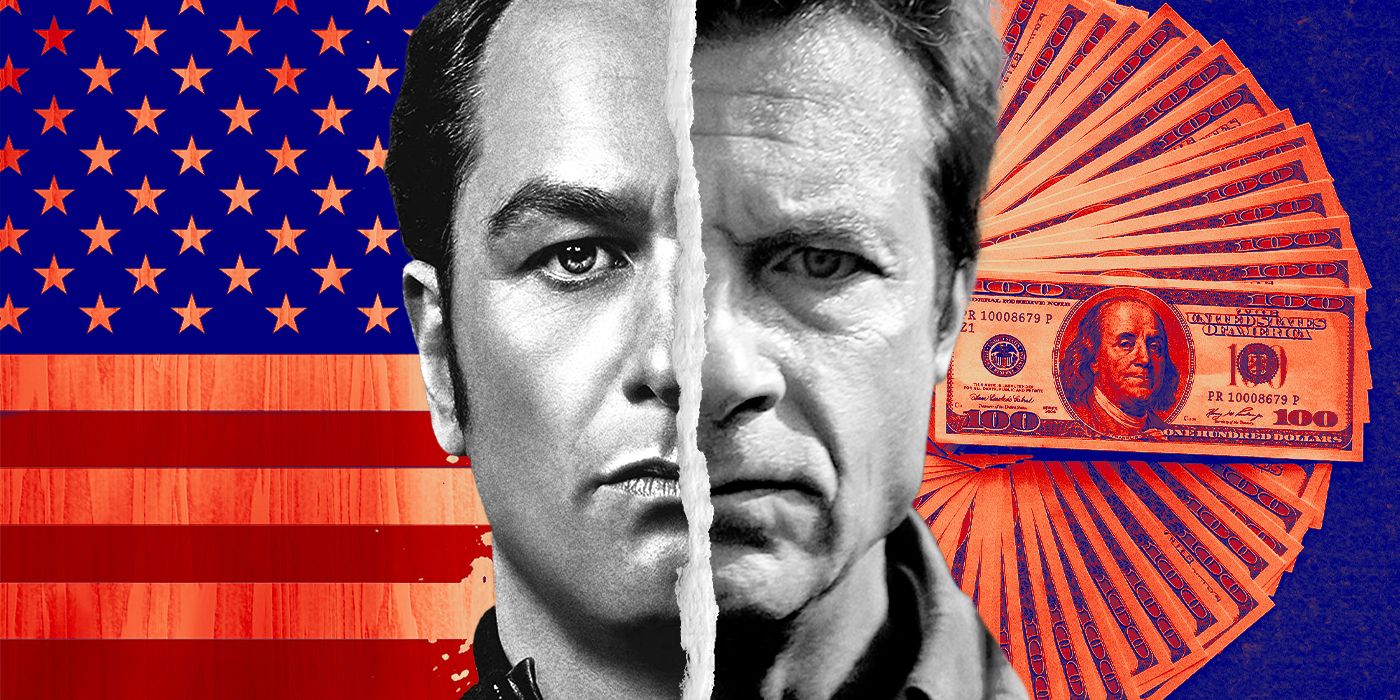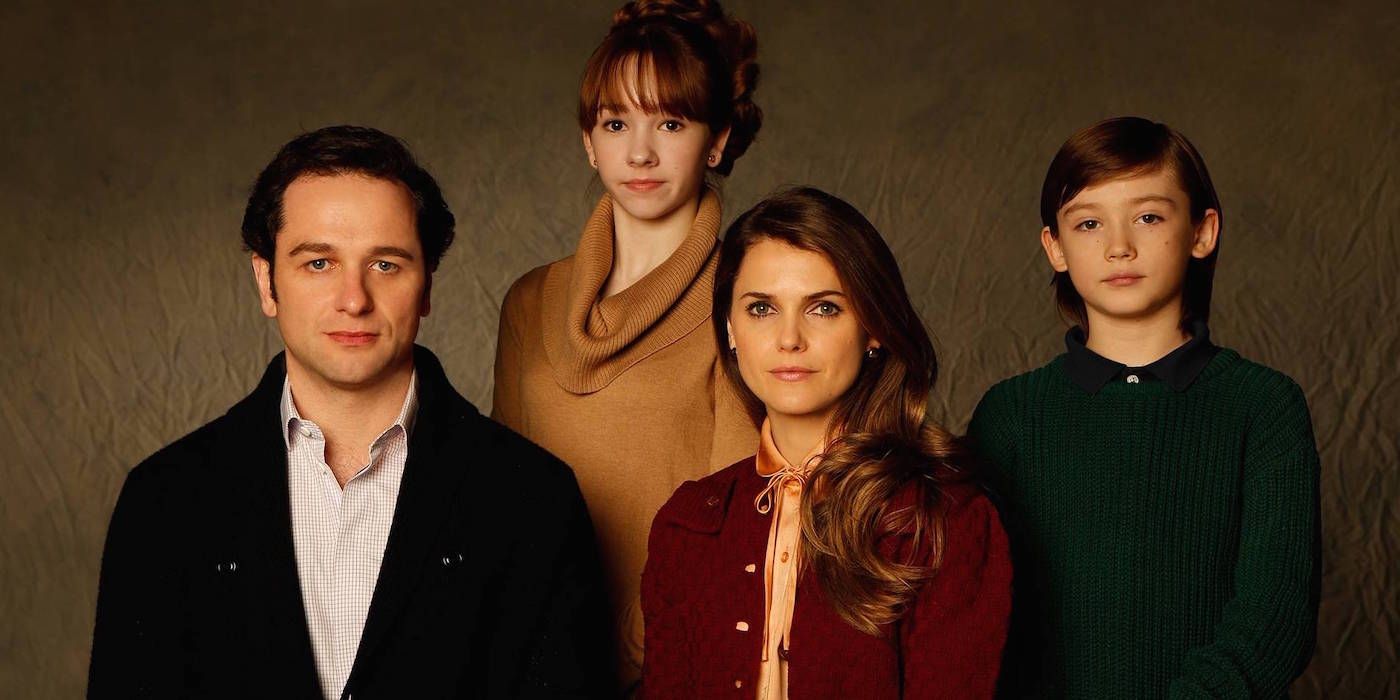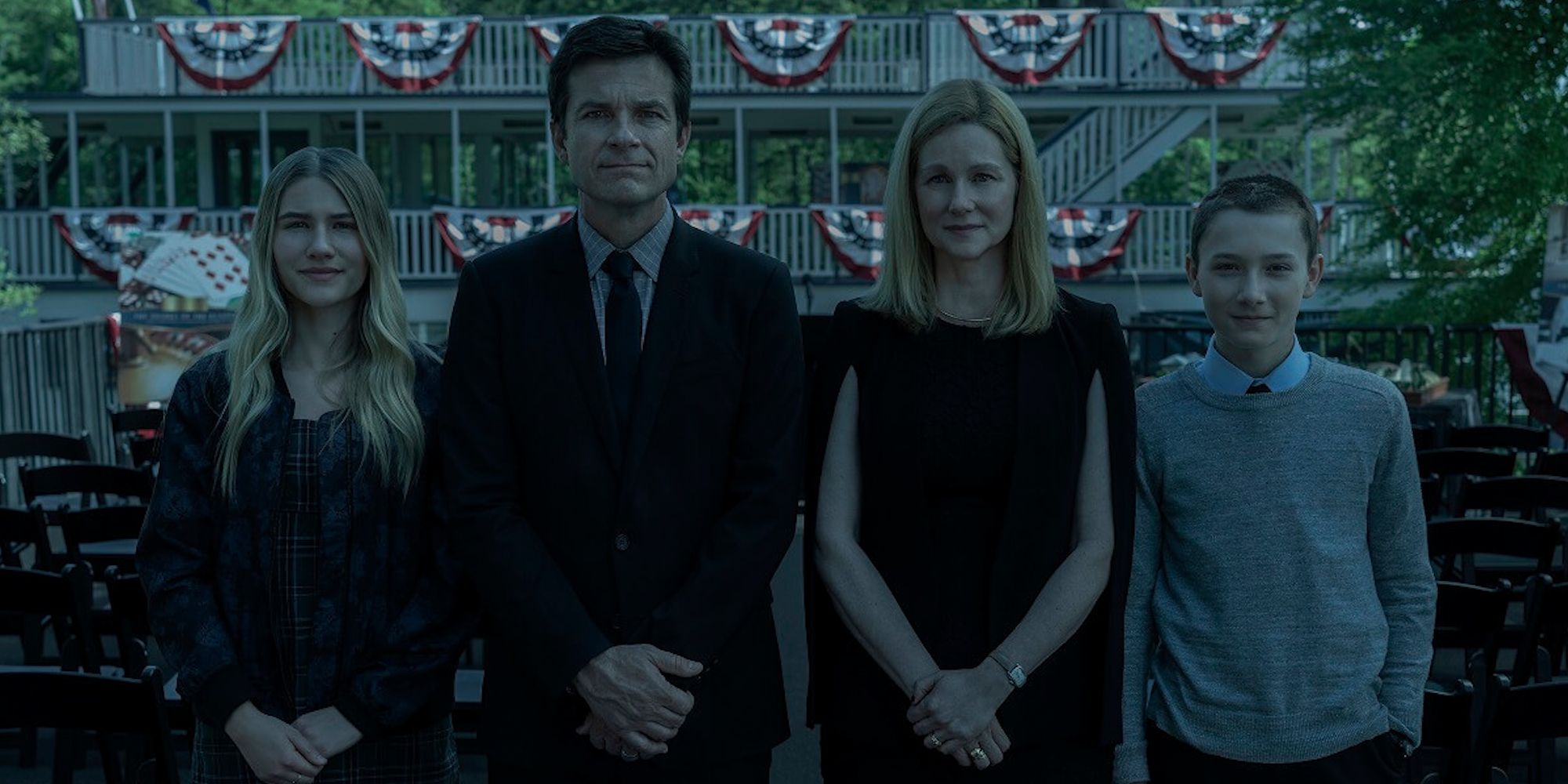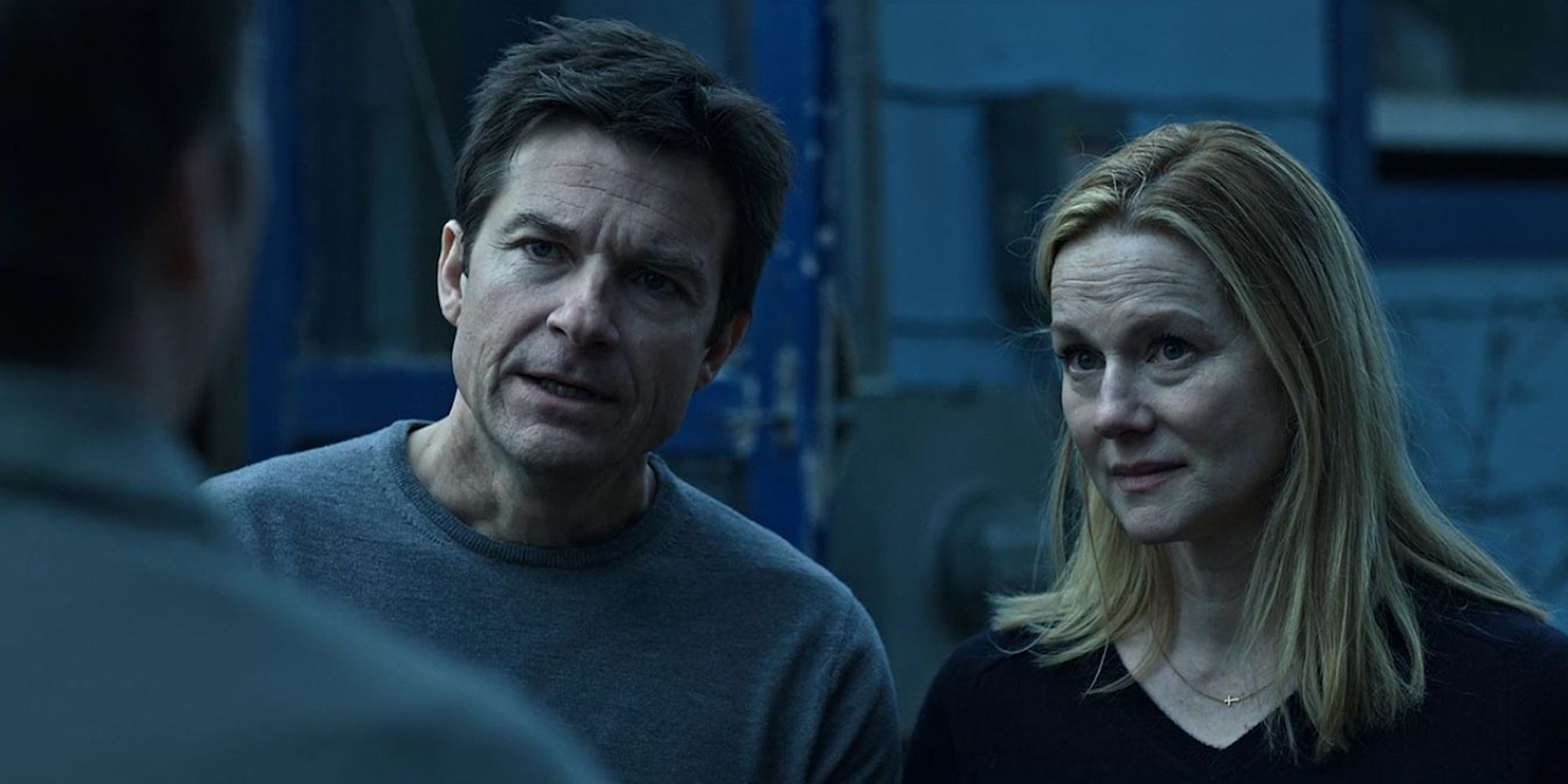Editor's Note: The following contains spoilers for Ozark Season 4.Family has always been central to both Netflix’s Ozark and FX’s The Americans. The two crime dramas have both been lauded for their nuanced depiction of families dealing with unusual circumstances, but their shared DNA is in the lives of their respective duos and how their decisions impact all those they love. Although both of the shows were primarily genre series focused on their respective eras, Cold War spy thriller for The Americans and contemporary crime thriller for Ozark, they both ended their run with a clear emphasis on family.
The Americans premiered on FX in 2013 and ended its run after six seasons in 2018, to some of the best reviews a show could hope to receive. It is still renowned as one of the best TV series to air on primetime television and starred Matthew Rhys and Keri Russell as Phillip and Elizabeth Jennings, two KGB agents posing as an American couple in Virginia. The spy drama featured some of the strongest acting in recent TV with assistance from Allison Wright, Noah Emmerich, Richard Thomas, and Margo Martindale, among others. While it principally aimed to tackle the Cold War tensions between the US and the Soviet Union, the series was foremost about the family that was at the center of the story. Phillip and Elizabeth mean little to each other at the beginning of their mission, with their marriage being nothing more than a chillingly effective cover for their actual efforts to undermine the US. In a bid to further protect their identities and be even less suspicious to any onlooker, they have two children, Paige (Holly Taylor) and Henry (Keidrich Sallati). This unites the two with them playing house in front of their children who initially have no clue about the origins and real work of their parents.
However, eventually, Paige does learn about what her parents are up to and consequently has to grapple with her own identity as an American child born to two Soviet spies intent on destroying the very place she has called home. While her brother remains oblivious to his parents' true selves, Paige is forced to confront, accept and even assist them in their missions. This becomes a source of conflict for Phillip and Elizabeth who disagree on her involvement in their work. Elizabeth, whose beliefs are more radically patriotic than her husband’s, is more than happy to have Paige carry on the work she and Phillip have done. Phillip, on the other hand, is more conflicted, reckoning with the damage they’ve inflicted on innocent people. His hesitancy to have his child continue on with his work is in part due to the emotional connections he’s forged with people like Stan (Emmerich) who he views as a good man despite him being an FBI agent, as well as the kind of life they’ve been able to lead in America.
In the final season of the show, the series also very clearly spells out something that’s been at the periphery the entire time - Elizabeth can’t seem to connect with her son. Despite Henry being a child, Elizabeth’s personal brand of stern governance always alienated her from him who was a happy-go-lucky all-American boy. This doesn’t mean that she doesn’t love him, as she fights with Phillip to take Henry with him to Canada, but it means she doesn’t understand who he is to the degree his father does. In the final episode when the Jennings have to leave their son behind, they do so over a call without clueing him in on what is truly happening.
Towards the end of the episode, we even see Phillip wistfully staring at a family eating McDonald’s, and the show is deliberate in its intention of highlighting what they’re about to lose by leaving Henry and living a life on the run. But the series’ most haunting and pivotal moment is at the end of the series when Phillip and Elizabeth notice their daughter has abandoned the train to watch them depart. To their horror, they are leaving America as they came, cold and only with each other to keep company. It’s fitting that the price for their sins is eventually losing both their children. It’s even more fitting that Paige’s series-long arc sees her reckoning with her American individualism versus the collectivism engrained in her parents until she is finally able to decide to not be forever bound to her parents.
A lot of these core elements and themes echo in Netflix’s Ozark. Like Paige and Henry in The Americans, Ozark has long alluded to Charlotte (Sofia Hublitz) and Jonah (Skylar Gaetner) being versions of their parents. Elizabeth finds herself unable to relate to Henry - thinking of him as spoiled and unaware of the blessings he’s had, things she was never given. Wendy Byrde (Laura Linney) has similar feelings about Jonah, failing to bond with her son the same way she can with her daughter. In both cases, the sons fall more closely with their fathers' ethos. Both series hint at the son and daughter of the respective lead characters following in the footsteps of their parents. Both shows also take aim at the collateral damage their parents' actions bring, with Ruth (Julia Garner) ultimately dying due to the inaction of Marty (Jason Bateman) and Wendy, despite Marty having considered her family for so long. Similarly, Phillip’s second wife, Allison, and his best friend, Stan, have also dealt with the consequences of getting close to the Jennings.
However, where Ozark ultimately differs from The Americans is how it speaks of the legacy of its central duo. In the final few episodes of the series, Marty and Wendy make a last-ditch effort at freedom from their life of crime and the Navarro Cartel. While fans were disappointed to see Ruth be killed in the final few minutes, it made a lot of sense given the trail of destruction that has followed the Byrdes from the moment we’ve gotten to know them. What doesn’t add up is Marty and Wendy failing to suffer in any way themselves. Instead, the series doubles down on its claim from its first season, how power remains in the hands of the corrupt, and they remain immune from any real damage.
The series illustrates its skewed ethics with one final twist, making Jonah, the Marty-esque rebellious son who had long contested his parents’ life, suddenly pick up a gun and join his parents’ crime spree by aiming it at the one person who has the power to bring them all down, Mel (Adam Rothenberg). We don't see the minor killing the private investigator but the point the showrunners are making still rings true as the credits roll and the sound of the shotgun being fired ricochets in our ears. Where The Americans ended with the children rejecting their parents' identity (Henry out of sheer ignorance), the children in Ozark have become primed to follow in their parents' footsteps. They’ve been complicit in the dealings of their parents, Charlotte handling the business side of things for a while, and Jonah himself dabbling with money laundering even before finishing high school. Now, with a murder on their hands, they’ve gone completely off the deep end.
In the end, both series illustrate the ways families are hurt and affected through the actions of the parents, both Elizabeth and Wendy grew up in rough, abusive homes and wanted to do everything to give their children a better chance. Yet their less-than-perfect upbringing also brought with it baggage and a willingness to act immorally for self-interest or what they consider is the greater good. And while The Americans argues that ultimately the price to pay is perhaps far too heavy, the gleefully cynical world of Ozark maintains that no one is infallible to moral corruption and self-interest, and that itself is an inherently American quality. Ruth, who works hard to escape from her life of crime and makes good on that self-promise, ultimately suffers a price. Whereas the white-collar all-American Byrdes in Ozark, who seem to have an idyllic existence, continue to be a monstrous presence with a legacy of destruction, all united by their criminal corruption.




